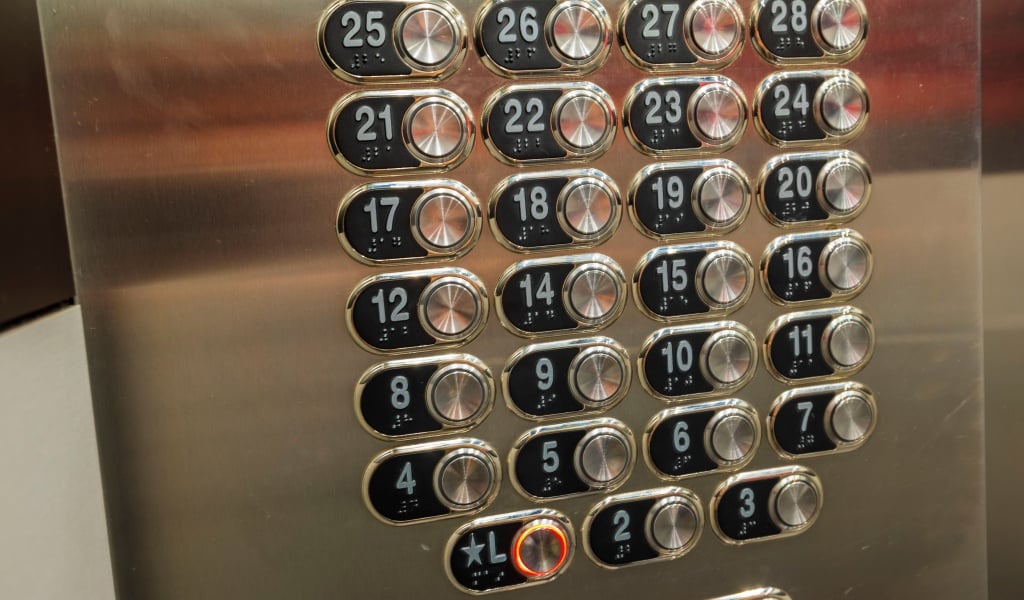If you have ever stepped into an elevator of a tall building and looked at the floor numbers carefully, you may have noticed something strange: the numbers go from 1 to however many floors the structure has, but they jump straight from 12 to 14! This is not a counting blunder but rather an intentional action. But why? It all comes down to the fear of the number 13. Why are people so wary of the number thirteen, and where does this fear come from? Let us find out.

Triskaidekaphobia is the “fear of the number 13.” Throughout history, many cultures have considered the number 13 to be unlucky. In Western culture, Friday the 13th is thought to bring misfortune. Ancient tales and myths often connected the number 13 with bad luck or even death. Historically, even having 13 people seated together at the dining table was believed to invite disaster. These long-held inferences have not only made people uncomfortable with the number but also created financial challenges for businesses, especially in real estate.
History and the Problem for Builders and Architects
The belief that the 13th floor is unlucky comes from superstition. In Western culture, the number 13 has long been seen as a symbol of bad luck.
There are several reasons behind this idea:
- Religious and cultural roots – In Christianity, Judas, the disciple who betrayed Jesus, was the 13th guest at the Last Supper. Because of this, the number 13 became linked with betrayal and misfortune.
- Numerical imbalance – The number 12 is often seen as complete: 12 months in a year, 12 zodiac signs, 12 hours on a clock. The number 13, being extra, feels irregular and unsettling.
- Historical events – Certain tragedies and legends have been tied to the number 13, such as the mass arrest of the Knights Templar on Friday, October 13, 1307. Friday the 13th is still seen as an unlucky day in many cultures. In fact, there’s a name specifically for the fear of Friday, the 13th: Paraskevidekatriaphobia!
Because of these long-held superstitions, many people avoid the number altogether. In buildings, this means skipping the 13th floor, often labelling it as 14 instead, so guests or buyers don’t feel uneasy. Some even say the superstition started with the world’s very first skyscraper: the Home Insurance Building in Chicago, completed in 1885.
Now imagine a tall building with many apartments or offices. If the elevator shows a 13th floor, some people might avoid renting or buying there because of the superstition. Sounds strange, doesn’t it? Others might feel nervous working on that floor every day, which leads to empty rooms and unhappy customers.
To solve this problem, many builders decided to skip the 13th floor. Instead of labelling it as floor 13, they simply call it 14. In reality, the 14th floor is actually the 13th level, but it’s just mislabeled to help people feel more comfortable.
Is Avoiding the 13th Floor Actually an Issue?
Not labelling a 13th floor in a building might seem like a small thing, but it can cause problems. In luxury establishments like hotels or condominiums, design matters a lot. You want to create the right atmosphere for the residents and visitors, but the superstition around the number 13 often gets in the way.
If a building does include a 13th floor, units on that level are usually harder to sell because some people avoid the number. As a result, the value of those condos or hotel rooms could drop, and that can affect the overall value of the building. So, besides superstition, there is also a financial reason why many developers decide to slap a different number on the door.

How Do They Do It?
There are a few ways buildings handle the missing 13th floor:
- Jumping Numbers – Elevator buttons go from 12 to 14 directly, just to put people at ease.
- Special Use – Some establishments keep the 13th floor but use it for maintenance, storage, or mechanical equipment instead of offices or apartments.
- Different Names – In some hotels, the 13th floor is labelled ‘12A’ or given another title to avoid using the number.
Do All Countries Do This?
Not everywhere! Skipping the 13th floor is most common in North America and Europe. In other cultures, different numbers are considered unlucky.
- In many Asian countries, the number 4 is avoided because it sounds like the word death in local languages. So, constructions often skip the 4th floor instead.
- In Italy, the number 13 is actually deemed lucky, symbolizing prosperity and life.
- In ancient Mayan civilization, 13 was seen as sacred and powerful.
Is It Just Superstition?
Yes, it is mainly superstition, but it has a real effect on people’s feelings and even businesses. That is why many modern skyscrapers, hotels, and office towers continue to skip the 13th floor. Instead of dealing with complaints or lost revenue, they skip the hassle altogether!
Conclusion
The next time you step into an elevator, look closely at the buttons. If you don’t see the number 13, you now know why it’s missing. Whether or not you believe the number 13 brings bad luck, one thing’s for sure: it has left a permanent mark on the lives of many, and in many unlikely places too – like the design of tall buildings in most parts of the world!



